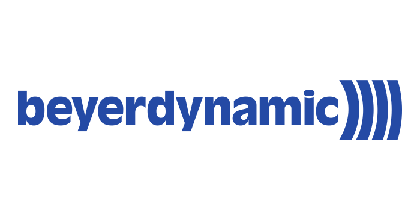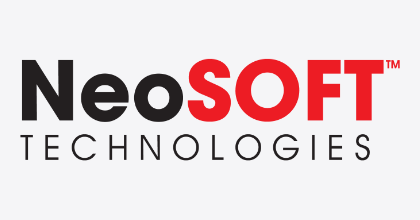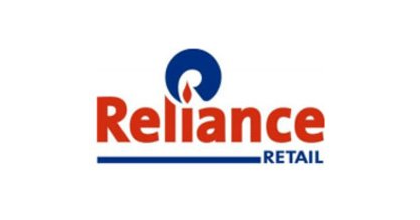SBI Personal Loan
When it comes to personal loans, SBI (State Bank of India) stands as a trusted and reliable lender. With its extensive network of branches and a solid reputation, SBI offers personal loans that cater to various financial requirements of individuals. Whether you need funds to consolidate your debts, cover wedding expenses, or fulfill any other personal financial need, SBI personal loans provide a convenient solution.
Here Are Some Key Things You Should Know About SBI Personal Loan
Eligibility Criteria
SBI has specific eligibility criteria that applicants need to meet in order to qualify for a personal loan. Generally, salaried employees, self-employed professionals, and individuals with a steady source of income are eligible to apply. The eligibility criteria may vary based on factors such as the loan amount and the borrower’s creditworthiness.
Loan Amount and Interest Rates
SBI offers personal loans ranging from a few thousand rupees to lakhs, depending on the borrower’s eligibility. The interest rates offered by SBI are competitive and depend on factors such as the loan amount, repayment tenure, and the borrower’s credit profile. It is advisable to compare interest rates and terms before finalizing a loan to ensure you get the best deal.
Repayment Options
SBI provides flexible repayment options for personal loans. Borrowers can choose a suitable tenure to repay the loan, ranging from a few months to several years. It is important to consider your financial capacity and choose a repayment option that aligns with your budget to avoid any financial strain.
Documentation
Like any other loan, SBI requires certain documents for the personal loan application process. These typically include identity proof, address proof, income proof, bank statements, and other relevant documents. It is essential to have all the necessary documents in order to expedite the loan approval process.
Application Process
SBI offers a convenient and user-friendly application process for personal loans. Applicants can choose to apply online through the bank’s website or visit a nearby branch to submit their application. The online application process saves time and allows for easy tracking of the loan status.
Prepayment and Foreclosure Charges
SBI may have prepayment or foreclosure charges applicable on personal loans. These charges can vary based on factors such as the loan amount, tenure, and the remaining balance at the time of prepayment or foreclosure. It is advisable to inquire about these charges beforehand to make an informed decision.
Remember to carefully evaluate your financial needs and repayment capacity before applying for an SBI personal loan. It is also recommended to read and understand the terms and conditions associated with the loan to avoid any surprises in the future.
SBI Personal Loan Eligibility Criteria
Eligibility criteria for a personal loan:
| CIBIL score | 750 and Above |
| Age | 21-60 years |
| Min Income | Rs. 25000/month |
| Occupation | Salaried/Self-employed |
Few of Our Clients, Partners & Accreditations






Eligibility Criteria for SBI Personal Loan
The eligibility criteria for SBI (State Bank of India) personal loans may vary based on factors such as the loan amount, repayment tenure, and the borrower’s creditworthiness. However, here are some general eligibility requirements that applicants should typically meet:
Age
When applying for a loan, the candidate must be at least 21 years old. The maximum age limit for salaried individuals is usually 58 years, while for self-employed individuals, it is often 65 years. However, these age limits can vary, so it’s essential to check with SBI for the specific requirements.
Employment Type
SBI personal loans are available to both salaried employees and self-employed individuals/professionals. Salaried applicants should have a stable job with a regular income. Self-employed individuals should have a well-established business or professional practice with a steady source of income.
Income
The applicant’s income plays a crucial role in determining their eligibility for an SBI personal loan. SBI sets a minimum income requirement, which can vary depending on the loan amount and the applicant’s location. The bank typically assesses the applicant’s repayment capacity based on their income stability, consistency, and ability to service the loan.
Credit History
SBI considers the applicant’s credit history to assess their creditworthiness. A good credit score increases the chances of loan approval and may also affect the interest rate offered. A higher credit score demonstrates a responsible repayment history and lowers the risk for the bank.
Other Factors
SBI may consider other factors such as the applicant’s existing financial obligations, employment stability, residential stability, and any past relationship with the bank while evaluating the loan application.
It’s important to note that these eligibility criteria are indicative, and SBI may have specific requirements and variations depending on the loan product and individual circumstances. To obtain accurate and up-to-date information, it is recommended to directly contact SBI or visit their official website for detailed eligibility criteria for personal loans.
SBI Personal Loan Processing Fees and Other Charges
When considering SBI (State Bank of India) personal loans, it is important to be aware of the processing fees and other charges associated with the loan. Here are some key details regarding these charges:
Processing Fees
SBI levies a processing fee on personal loans, which is a one-time charge for processing the loan application. The processing fee is usually a percentage of the loan amount and may vary based on the borrower’s profile and the type of personal loan availed. It is advisable to check the applicable processing fee before applying for the loan.
Prepayment Charges
SBI may have prepayment charges applicable if you choose to repay the personal loan before the completion of the loan tenure. Prepayment charges are usually a percentage of the outstanding loan amount and may vary depending on the loan product and the time of prepayment. It is recommended to inquire about these charges as they can impact the total cost of the loan.
Late Payment Charges
In case of delayed or missed payments, SBI imposes late payment charges. These charges are typically a percentage of the overdue amount and are levied to compensate for the delayed payment. It is important to make timely repayments to avoid incurring such penalties.
Documentation Charges
SBI may also charge a nominal fee for document verification and processing during the loan application. These charges cover the administrative costs associated with verifying the borrower’s documents and ensuring compliance with regulatory requirements.
EMI Bounce Charges
If there is insufficient balance or a failed payment during the Equated Monthly Installment (EMI) deduction process, SBI may impose EMI bounce charges. These charges are levied to cover the costs incurred by the bank for unsuccessful EMI deductions.
It is crucial to carefully review and understand the terms and conditions associated with these charges before finalizing a personal loan with SBI. Being aware of the applicable fees and charges allows borrowers to make informed decisions and budget their repayments effectively.
FAQs
A: The minimum and maximum loan amount available through SBI personal loan depends on various factors such as your eligibility, income, and creditworthiness. Generally, SBI offers personal loans starting from Rs. 25,000 up to a maximum of Rs. 20,00,000. The exact loan amount you can avail will be determined based on your specific circumstances.
A: The interest rates offered on SBI personal loans are competitive and subject to change based on market conditions. As of the latest information, the interest rates typically range from 9.60% to 15.65%, depending on the loan amount, repayment tenure, and the borrower’s credit profile. It is recommended to check with SBI or visit their official website for the most up-to-date interest rate information.
A: The eligibility criteria for SBI personal loan may include factors such as age, employment type, income level, credit score, and repayment capacity. Generally, salaried employees, self-employed professionals, and individuals with a regular source of income are eligible to apply. The minimum age requirement is usually 21 years, and the maximum age is typically 58 to 65 years, depending on the type of employment. It is advisable to contact SBI or visit their website to understand the specific eligibility requirements for personal loans.
A: Yes, self-employed individuals can apply for an SBI personal loan. SBI offers personal loans to both salaried employees and self-employed professionals, provided they meet the eligibility criteria and submit the required documentation to support their income and financial stability.
A: No, SBI personal loans are generally unsecured loans, which means they do not require collateral or any form of security. SBI provides personal loans without the need for pledging assets as security.
A: SBI offers flexible repayment tenure options for personal loans. The repayment tenure can range from 12 months to 72 months (1 year to 6 years), depending on the loan amount, borrower’s profile, and other factors. Borrowers can choose a repayment tenure that suits their financial capability and preferences.
A: You can apply for an SBI personal loan through both online and offline channels. For the online application, you can visit the official SBI website and fill out the application form. You can also visit your nearest SBI branch and speak to a loan officer who will guide you through the application process and assist you in completing the necessary paperwork.
A: The documents required for an SBI personal loan may include proof of identity (such as PAN card, Aadhaar card, passport, or driver’s license), proof of address (such as utility bills or rental agreement), income proof (such as salary slips, bank statements, or income tax returns), and other relevant documents as specified by SBI. It is recommended to check with SBI or visit their website to get a comprehensive list of required documents.
A: Yes, SBI charges a processing fee for personal loans. The processing fee is typically a percentage of the loan amount and is subject to a minimum and maximum limit. The exact processing fee will be specified by SBI at the time of application. It is advisable to inquire about the processing fee and any other applicable charges before applying for an SBI personal loan.
A: Yes, you have the option to prepay or foreclose your SBI personal loan. However, SBI may levy prepayment charges or foreclosure charges for such actions. The specific charges depend on the type of loan, loan amount, repayment tenure, and other factors. It is advisable to check with SBI to understand the prepayment and foreclosure charges applicable to your personal loan.
Assertiveness, Persistance, Professionalism underlines our approach. To know further…
Testimonials








